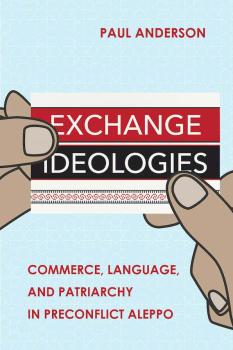
Dr Paul Anderson is the Prince Alwaleed Associate Professor in the Department of Middle Eastern Studies at the University of Cambridge, the Assistant Director of the University’s Prince Alwaleed Centre of Islamic Studies, and a Fellow of Darwin College, Cambridge. Dr Anderson is a social anthropologist interested in the articulation of economic, moral and political life. He has conducted ethnographic fieldwork in Syria, China, Turkey and the UAE.
His new book (2023) is entitled "Exchange Ideologies: Commerce, Language and Patriarchy in Pre-conflict Aleppo", and is published with Cornell University Press:
https://www.cornellpress.cornell.edu/book/9781501768309/exchange-ideolog...
At the University of Cambridge, he teaches courses and supervises research on the anthropology of the Middle East, and the anthropology of Islam.
Dr Anderson lectures and supervises Masters students, and supervises PhD projects within the field of social anthropology, particularly as related to his current research interests in trade and the morality of exchange.
Dr Anderson is open to receiving applications for MPhil and PhD projects from students with a training in social anthropology, who want to work on projects that contribute to current debates in anthropology, particularly in relation to the anthropology of Islam, ethics or commerce; or the anthropology of Syria.
Applicants for PhD study should have some prior academic training in anthropology, which is also usually offered as part of the MPhil by advanced study programme.
Exchange Ideologies: Commerce, Language and Patriarchy in Pre-Conflict Aleppo
My new book (2023), Exchange Ideologies, documents the social world of Aleppo's traders before the destruction of the city, exploring changing conceptions of commerce in Syria. Syria's traders have been seen as embodying a timeless culture of "the bazaar," or an ahistorical Islamic culture of trade. Other accounts portray them as venal figures, motivated only by profit, and commerce as a purely instrumental pursuit. Rejecting both approaches, Paul Anderson traces the diverse social structures, and notions of language, through which Aleppo's merchants understood and construed commerce and the figure of the merchant during a period of economic liberalization in the 2000s. Rather than seeing these social structures and representations as expressions of a timeless bazaar culture, or as shaped only by Islamic tradition, Exchange Ideologies relates them to processes of politically managed economic liberalization and the Syrian regime's attempts to ensure its own survival in the midst of change. In doing so, Anderson provides an account of economic liberalization in Syria as a social and cultural process as much as a political and economic one.
The Afterlives of Urban Muslim Asia: Alternative Imaginaries of Society and Polity
It is widely accepted the conflict and large-scale migrations over the past century, of minorities and Muslims, have led to "decosmopolitanisation". However, interreligious relations sometimes persist in older and newer diasporic contexts, and in appeals to shared urban heritage. This comparative research programme, led by the University of Sussex and in collaboration with the Universities of Copenhagen and Cambridge, analyses the ways in which both everyday living and projects of the imagination invoke urban imaginaries, and the extent to which these transcend (or reinforce) religious, sectarian, national and ethnic boundaries. http://www.sussex.ac.uk/global/research/researchprojects/afterlivesofurb...
A New Silk Road? Mercantile Connections across Asia
Another strand of my recent work aims to describe the dynamics of long-distance trading networks connecting China to markets in West Asia and Arabic-speaking countries. It is part of a European Research Council-funded project, led by Professor Magnus Marsden, entitled ‘Trust, Global Traders, and Commodities in a Chinese International City’, documenting the trading networks and activities centred on the city of Yiwu in south east China. The focus of this work, which is also supported by the Centre of Islamic Studies, is on the history of trading routes between China and the Arab world, the social dynamics and identities, and forms of trust/mistrust underpinning these long-distance trading networks.
Current PhD students
| Rubby Haji Naif: Interfaith relations and integration of Muslim Syrian refugees in Germany: the case of 'The House of One'. |
| Shahla Suleiman: TBC |

